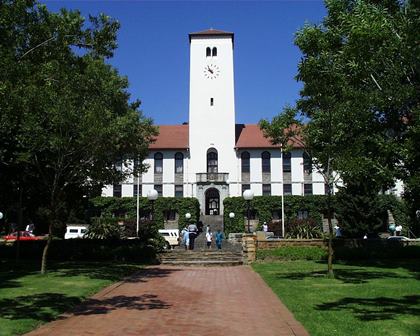Juniors Marire from the Economics Department in Rhodes University presented his paper titled “Are South African public universities economically efficient? Reflection amidst higher education crises”.
The talk was part of the Biennial Conference of the Economics Society of South Africa (ESSA), hosted at Rhodes University last week.
Marire’s paper touch on the #FeesMustFall movement as well as the mandate created by section 29 of the South African constitution. This section of the constitution states that everyone has the right to a basic education as well as further education, which the state must make progressively available and accessible through reasonable measures.
Marire discussed the question of what determines the economic (in)efficiency of public universities. It was determined that an efficient institution is one which works well, without unnecessary duplication or waste, and within the bound of affordability and sustainability, and one which makes optimal use of available means. The next question that arose was whether, and to what extent, the Post School Education and Training (PSET) system produces graduates efficiently. Marire found that South Africa’s PSET sectors are demonstrating an inefficient post schooling system.
His research has also found that time-varying cost elasticities of producing non-research graduates decrease with Universities that have strong PhD and Masters numbers by research outputs. Historically disadvantaged universities generally have the highest cost inefficiency, possibly because of lack of institutional capacity. While the number of PhD candidates at an institution do not necessarily contribute to the efficiency of the institution, there is a positive correlation between the number of professors hired by an institution and its levels of efficiency.
Marire concluded his presentation by stating that the employment of postgraduate students in South African universities would have cost-saving effects in the teaching industry.
- Hlombe Gxawula, a Rhodes University School of Journalism and Media Studies student, wrote this piece during a 40-hour job-shadowing internship with Grocott’s Mail.


